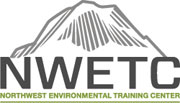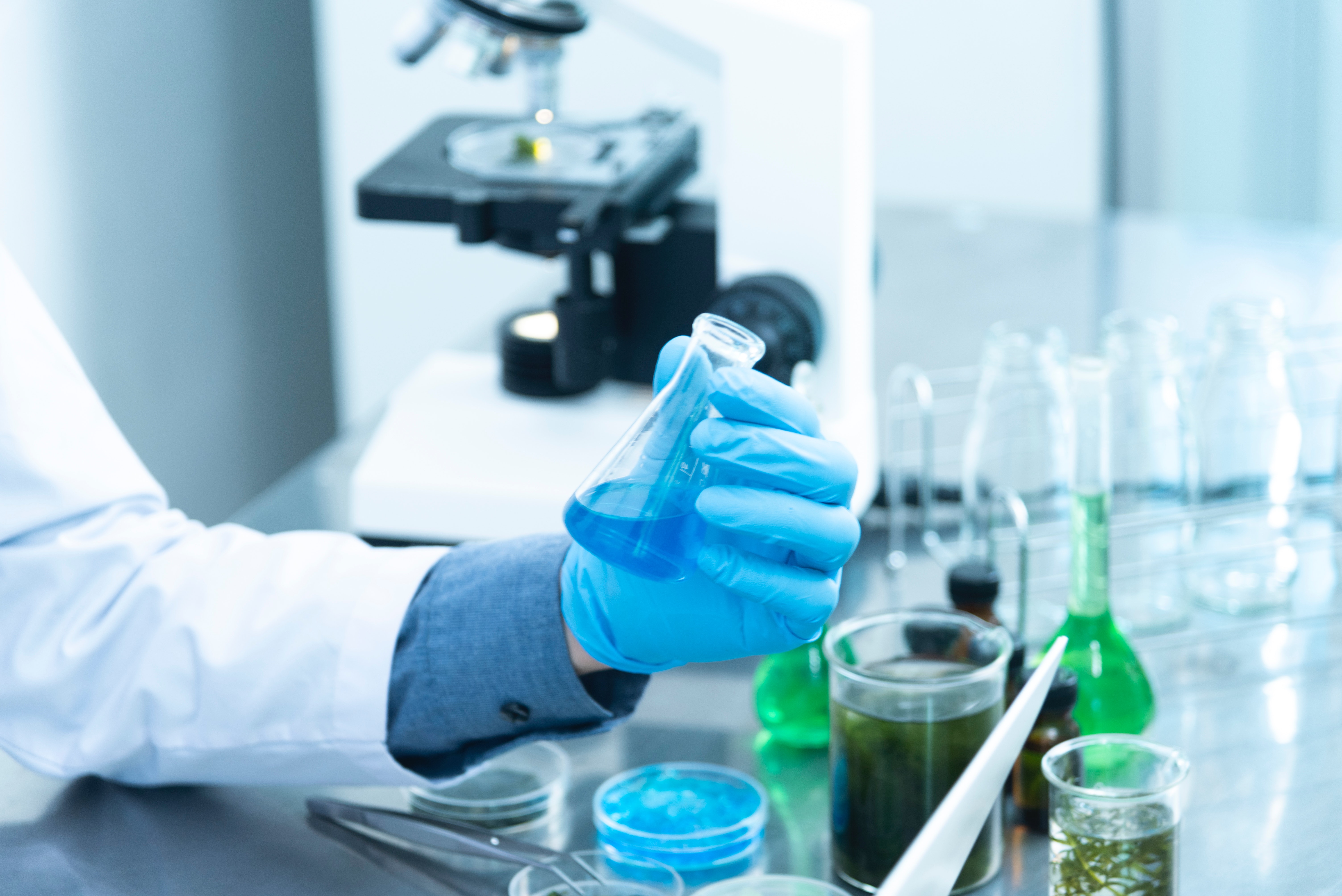|
Description: The objective of the course is to present a survey of analytical chemistry and instrumental analyses. The class begins with an introduction/refresher/review of the laboratory including safety, glassware, basic math, data treatment (statistics), graphing and Excel, lab solutions, acid base theory and titrations. A section is also devoted to the introduction and use of an example of a typical laboratory LIMS program. The course then quickly moves to the theory and application of analytical techniques such as spectroscopy including UV/Vis, fluorescence, FTIR, NMR, and metals analyses including AAS, AMS, XRF and XRD, and then chromatography including HPLC, SPE, TLC, GLC, GC-MS, SCX and CE. The course then completes with a short survey of modern mass spectrometry. The course includes the use of two working programs, the first an example of a typical laboratory LIMS used for sample logging and data input, and the second is a chemist and technicians toolkit used for numerous applications in the lab, for teaching, and for review. This course includes a software dowload for the Chem-Tech-Toolkit and a Laboratory Information Management System (LIMS) program. The ChemTech program serves as a reference for chemists and technicians and as a teaching guide for lab technicians. The toolkit is accompanied by a textbook, Analytical Chemistry: A Chemist and Laboratory Technician's Toolkit 1st Edition. The software and textbook are included in the cost of tuition. When you register for this course, we will ship the book to you. If you withdraw from the course, cost of the book is non-refundable. This 1-day course covers the same content as the 2-day course but in a condensed delivery.
Intended Audience: The course is an introductory and refresher course that targets chemists, lab technicians, analysts and undergraduate students. Lab managers and supervisors who want to observe the course, the course’s book, and the accompany LIMS and ToolKit programs to incorporate it into their laboratory systems. Teachers and professors to use the LIMS, the Toolkit program and accompanying text book to teach a laboratory and/or analytical chemistry course.
Continuing Education Units: 1.60 CEUs
Course Topics
Course Sections Introduction to the Analytical Laboratory Chemist and Technician in the Analytical Laboratory Laboratory Safety Basic Mathematics in the Laboratory Analytical Data Treatment (Statistics) Plotting and Graphing in the Laboratory Introduction to Microsoft Excel Laboratory Solutions Making Laboratory Solutions Normality Molarity Acid Base Theory and Buffer Solutions Titration as an Analytical Technique Electrochemistry Introduction Laboratory Information Management System (LIMS) Intro to a working LIMS Logging in samples Data recording Sample searching Approving, archiving, and reporting samples Spectroscopy Ultraviolet/Visible (UV/Vis) Absorption Spectroscopy Fluorescence Optical Emission Spectroscopy Fourier Transform Infrared Spectroscopy (FTIR) Nuclear Magnetic Resonance Spectroscopy (NMR) Atomic Absorption Spectroscopy (AAS) Atomic Emission Spectroscopy (AES) Atomic Mass Spectrometry X-ray Fluorescence (XRF) and X-ray Diffraction (XRD) Chromatography - Introduction and Theory High Performance Liquid Chromatography (HPLC) Solid Phase Extraction (SPE) Thin Layer Chromatography (TLC) Gas Liquid Chromatography (GLC) Gas Chromatography-Mass Spectrometry (GC-MS) Strong Cation Exchange (SCX) and Capillary Electrophoresis (CE) Mass Spectrometry Introduction The class also includes a companion teaching, reference, and toolkit program called ChemTech-ToolKit.
About the Instructors
 Dr. Aihui MaHam is a professional analytical chemist, an analytical chemistry instructor, and a chemistry book author. She is an expert in the field of inorganic materials chemistry, and their characterization. She specializes in inorganic instrumental analyses utilizing scanning electron microscopy (SEM), x-ray diffraction and x-ray fluorescence spectroscopy (XRD/XRF), inductively coupled plasma optical emission spectroscopy (ICP-OES), and low and high resolution ICP-mass spectrometry (ICP-MS). She has a BS in Chemistry Education, an MSc in Physical Chemistry, and a Ph.D. in Analytical Chemistry. She also specializes in nano-materials including the synthesis and characterization of chemical and biological nano-sensors. She has published numerous research papers including a recent review in the journal Small entitled Protein-Based Nanomaterial Platforms for Drug Delivery, which has been widely cited over 500 times by researchers in her field. She also co-authored the current course’s textbook: Analytical Chemistry: A Chemist and Laboratory Technician’s Toolkit, John Wiley & Sons, Inc., 2016. She is currently a Forensic Scientist for the Department of Homeland Security at the U.S. Customs and Border Protection New York Laboratory. Her current interests include the application of instrumental analyses to the modern analytical laboratory.
 Dr. Bryan Ham is a professional analytical chemist, an analytical chemistry instructor, mass spectrometrist, chemistry book author, and software coder (VB.Net and VBA for MS Access and Excel). He has worked in analytical chemistry laboratories for over 25 years including environmental, petrochemical (monomers/polymers), petroleum, foodstuff, and life sciences research, giving him a very broad background in analytical chemistry analysis, instrumental analysis, and laboratory management. He has a BA in Chemistry, and a Ph.D. in Analytical Chemistry. He has published 15 research papers in peer reviewed journals, two encyclopedia chapters in the Kirk-Othmer Encyclopedia of Chemical Technology, and three analytical chemistry books: the first an intro to mass spectrometry: Even Electron Mass Spectrometry with Biomolecule Applications, John Wiley & Sons, Inc., 2008, the second covers proteomics: Proteomics of Biological Systems: Protein Phosphorylation Using Mass Spectrometry Techniques, John Wiley & Sons, Inc., 2012. His third most recent book is an analytical chemistry book (used in this course) that also contains two programs on a CD in the back cover that he has written: Analytical Chemistry: A Chemist and Laboratory Technician’s Toolkit, John Wiley & Sons, Inc., 2016. The first program is a standalone software package called ChemTech which is a chemist toolkit written in Visual Basic. The second program is a Laboratory Information Management Software written in Visual Basic for Applications specifically Microsoft Access database software. He is currently a Forensics Scientist for the Department of Homeland Security at the U.S. Customs and Border Protection New York Laboratory. He is a member of the American Society of Mass Spectrometry (ASMS) and the American Chemical Society (ACS). His interests include teaching the fundamentals of analytical chemistry and instrumental analyses as applied to modern analytical laboratories.
What to Bring
This course will be held in a virtual classroom as a remote, interactive, live-stream presentation. Please make sure to provide NWETC with the best mailing address for us to get the course materials to you. You should have the course textbook with you and install the ChemTech-Toolkit and LMIS program onto your computer prior to class. If you need assistance, NWETC staff and the instructor will be available to walk you through the installation process at the beginning of class.
Billing Information
In order to guarantee a space in a course, the tuition must be paid in full TWO WEEKS before the first day of the course by either check or credit card. State and government agencies paying with a purchase order are allowed payment under the two-week time frame if a copy of the purchase order is received by NWETC.
If You Need to Cancel
Cancellations*-
With 31 or more days notice, we will offer a 100% refund or credit towards a future course. The credit is good for one year and may be applied to any course.
- With 30-8 days notice, we will offer a course credit towards a future course. The credit is good for one year and may be applied to any course.
- With fewer than 8 days notice, there is no course credit available
*Please note that attendee replacement is welcome at any time
Disability Accommodations
Disability Accommodations:To request disability accommodations, please contact us at info@nwetc.org or 425-270-3274 at least 30 days prior to the event
|











